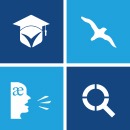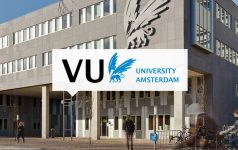Study in Netherlands
Higher education in Holland is known for its high quality and its international study environment. With more than 2,100 international study programmers and courses, it has the largest offer of English-taught programmers in continental Europe. The Netherlands gets its name from the fact that around a quarter of this small northwestern European nation lies below sea level. Beyond its traditional associations (think windmills, tulips and clogs), it is one of the most developed and wealthy nations in the world, with a largely urban population. One of the most densely populated countries in Europe, it’s known for its tolerant and liberal ethos, and boasts a wealth of great student cities – none of which are more than a bicycle ride (the nation’s preferred mode of transport) away from some picturesque countryside.
Click on the tabs below to find out about top universities in the Netherlands, popular student cities, and how to get started with applications, costs and visas.
Education Systems
Binary System
Netherlands higher education has a binary system, which means that you can choose between two types of education:
- Research-oriented education, offered by research universities.
- Higher professional education, offered by universities of applied sciences.
A third, smaller branch of higher education is provided by institutes for international education, which offer programmes designed especially for international students.
Three Cycles
In 2002 Holland introduced the bachelor’s-master’s degree structure, but the distinction between the two types of education still exists. Both research universities and universities of applied sciences can award a bachelor’s or a master’s degree.
You first obtain a bachelor’s degree (first cycle), you can then continue to study for a master’s degree (second cycle). After completion of a master’s programm you can start a PhD degree or P Deng degree programm (third cycle).
Document Checklist for Study Abroad
- A completed application form;
- Official transcripts from all post-secondary institutions attended;
- Official documentation confirming professional designations, where applicable;
- Two (2) letters of academic reference attesting to readiness for graduate studies; For those without recent academic experience, letters from employers attesting to level of experience and analytical writing skills will be acceptable;
- A detailed chronological resume clearly outlining educational achievements, work experience and progression, and other related experience;
- A Letter of Intent (LOI) that clearly explains why the applicant is applying and outlines the student’s academic intentions.
Applicants who completed undergraduate studies must also submit:
- Documentation confirming their degree was awarded, if not already indicated on official transcripts;
- A credential evaluation from a recognized service confirming equivalency if the applicant submits a credential from an unrecognized institution or if additional analysis is required by the Admissions Committee;
Proof of English language proficiency.
Entry requirements for universities in the Netherlands
First, you have to contact the international office of the university you are interested in to check whether your degree (obtained in your homeland) is recognised in the Netherlands. Given that your degree is recognised in the Netherlands, you may need: A residence permit if you are not an EU / EEA or Swiss citizen.
- Sufficient mastery of English: TOEFL (minimum 550 paper based, 213 computer based), IELTS (minimum average of 6) GMAT or GRE.
- A minimum average of 7 – 7,5 (foreign diploma).
- To be accepted by the university you have applied to. Institutions may reject your application or ask you to take some admission tests if they believe you are not fully qualified.
- A good command of Dutch if you are after a study programme in Dutch. Most universities may also offer you courses in Dutch as a second language so you can prove that you have sufficient mastery of the language.
Required average scores vary depending on university and major. Also, note that for some programmes, the number of applicants is much higher than that of available places – in this case, a selection procedure takes place.
Intake: Students may be able to start in spring (January – April), summer (May – August) or autumn (September – November).
Language requirements
It is essential that you speak, read and write English well. You must have passed an English language test. IELTS and TOEFL are commonly accepted, but institutions may accept other tests as well, like Cambridge English.
The required scores are at least 550 (paper based) or 213 (internet based) for TOEFL. For IELTS a score of at least 6 is required.
Study abroad exams
Language exams
- IELTS
- TOEFL
- PTE
Aptitude exams
- GRE
- GMAT
- SAT
Student Scholarships
- Scholarships to Study Abroad
Study abroad application writing
- Statement of purpose (SOP)
- Letter of recommendation (LOR)
- Admission Essay
- Student CV
- Student Visa
- Education Loans
Application Assistance
Expert Help
- Shiksha counseling service
Document Shipment
- DHL Student offer
Preparatory year
Sometimes you are not yet eligible to the programme of your choice, but with a little extra preparation you could succeed next year!
Ask the Dutch higher education institution of your choice for more information.
There are several ways of applying for a programme.
Check the institution’s website pages for the programme of your choice to find information on the application process. Note that some programmes have a selection procedure and an application deadline of 15 January.
Acceptance
Your institution will send you a notification of acceptance. If you have questions about your acceptance, please contact the institution directly.
Non-EU nationals
- Depending on your nationality, you may need to apply for a provisional residence permit, known as an MVV (Machtiging tot Voorlopig Verblijf). The Nuffic website has the relevant information. Your host institution will probably make the actual application for you, but you will need to supply all the necessary documents, which must be in Dutch, English, French or German, or officially translated into one of these languages. As well as basic documentation showing you’re actually enrolled on a course, you will need to prove you have €833.22 (~US$940) a month to support yourself.
- Chinese students enrolling on English language courses must also apply for the Nuffic Certificate, which can be done online through the Nuffic Certificate Online Application System, in order to get their MVV.
- You will need to apply for a residence permit. Your institution will apply for this on your behalf, which should occur within five days of your arrival in the country. Your permit will be valid for a maximum of 12 months, after which you must renew. Some, but not all, institutions will do this for you, so make sure you check the process.
- You must also register with the local Aliens Police (Vreemdelingendienst) within three days of arriving, to whom you must prove that you have somewhere to live and that you have enough money to support yourself during your stay.
- You should also register with your local municipality.
- Purchasing health insurance is mandatory.
- If you want to work while you study, you will need to apply for a work permit, which will allow you to work for 10 hours a week during term time, and full time during holidays. Your employer will apply for this.
Find programs at top universities in the Netherlands with QS Course Finder
Then it comes to tuition fees, you will find on some university websites 2 type of tuitions: Statutory and Institutional. The difference between them is:
- Statutory tuition fee: usually applies to EU/EEA students, or to those who have already studied in Netherlands, or have a certain type of residence permit (like the one if you’re a family member of an EU/EEA national, if you have an unlimited residence permit or an asylum permit, you have a “long-term resident-EC” residence permit, and so on);
- Institutional tuition fee: usually, if you don’t meet the statutory tuition fee criteria, you are automatically required to pay this type of fee.
As a general rule of thumb, the institutional fee is higher than the statutory fee, because the government offers the university money to subside the statutory fee. I know, it’s a lot of bureaucracy behind this, so never take these tuitions personal.
Average tuition fees EU/EEA students
- Bachelor programmes: between 700 and 1,950 EUR/year
- Master programmes: between 2,000 and 5,000 EUR/year
Average tuition fees non-EU/EEA students
- Bachelor programmes: between 6,000 and 12,000 EUR/year
- Master programmes: between 8,000 and 20,000 EUR/year
Maximum costs for a degree in the Netherlands
- Bachelor’s programmes: 17,000 EUR/year
- Master’s programmes: 30,000 EUR/year
You’re more likely to encounter higher costs at private Dutch universities.
Good news! If you are from an EU/EEA country or Suriname and you start studying a Bachelor’s at a public university in the Netherlands in 2018-2019, you will only pay half of the tuition fee in the first year. This means that for the first year of studies your fee will only be 1,030 EUR.
A main condition to be eligible is to not have studied in Netherlands before.
The fee discount also applies to Master’s degrees in Initial Teacher Education, provided that you start a Bachelor’s in Education in 2018-2019.
Visas and permits
To enter the Netherlands for study or research purposes, you might need a visa and work permit. EU nationals do not need a visa to stay in the Netherlands or a work permit to work in the Netherlands.
Whether you need a visa or not, depends on:
- your nationality – as stated on your passport.
- the duration of your stay: shorter or longer than 90 days.
- your purpose of stay.
Your institution needs to apply
When you enroll in a study programm, your host institution will contact you to start up the application procedure. If not, ask for help by contacting the international office (or if you are a researcher, the HR department) of your host institution.
Start preparations early
Although the IND will generally process the application quite fast, we recommend that you start the process early. It may take some time for you to collect all the relevant documents for your institution.
Use our Pathfinder tool to check which procedure applies to you:
Please note: if you are NOT coming to study or to do a preparatory year or exchange programm, you need to check the website of the Dutch Immigration and Naturalization Service (IND) for the requirements.
Working while studying
All you need to know about working in Holland.
If you are from the EU/EEA or Switzerland you are free to work without restrictions.
As of 1 July 2018 Croats have the same rights as other EU citizens and no longer need a work permit.
Are you from another country than the ones mentioned above? Then there are some restrictions if you want to take a job beside your studies. You need a permit and you can only work for a maximum of 16 hours a week or, instead, you can work full-time during the summer months of June, July and August.
SCHOLARSHIPS
Unfortunately, British universities don’t give any scholarships for average Bagnoli Students, with terribly rare exceptions in academic degree level. Some universities may give students with good or exceptional backgrounds, a part tuition fee waiver. Some universities offer discounts of a thousand – one thousand five hundred (1000-1500) Pounds to students with smart tutorial backgrounds.
Though financial aid is very little for international students, there are certain scholarships offered for study in UK managed by the British Council and other institutions. British Ch evening Scholarships, Commonwealth Scholarships and Fellowships.
Work permit application
Your employer needs to apply for your work permit. The organization that issues work permits is called UWV.
Preparations to make during your stay
Exceptions
If you are studying at a Dutch host institution and you need to do an internship as part of your study programme, you do not need a work permit. Your host institution and your employer do need to sign an internship agreement.
Since April 2017 all international students may perform self-employed work for an unlimited amount of hours, in addition to their studies and part-time job (with a maximum of 16 hours a week). Students do not need to apply for a work permit with UWV for the performance of self-employed work. They do, however, have to register with the Dutch Chamber of Commerce (Kamer van Koophandel).
Health insurance and jobs
You need to be aware that as soon as you pick up a job, you are obliged to take out Dutch basic healthcare insurance. This obligation also applies to students that are self-employed. If you do not meet this requirement you risk a huge fine.
Social security number
BSN is short for Burger Service Number, which translates as ‘citizen service number’. The BSN is equivalent to a social security number: a unique registration number for every citizen, used in contacts with any government service.
Various people may ask for your BSN. If you have a job, your employer will need to know your BSN. Insurance companies may also ask for your BSN-number.
When registering with your local municipality, you are automatically issued a BSN. Your local town hall will most likely send you a letter to confirm all your personal details listed in their administration. This letter will also mention your BSN.
Income tax
You are required to pay tax over your total Dutch income for the year. Scholarships may also be counted as income and added to the total. For more information on income tax, you can check with your employer or directly.















